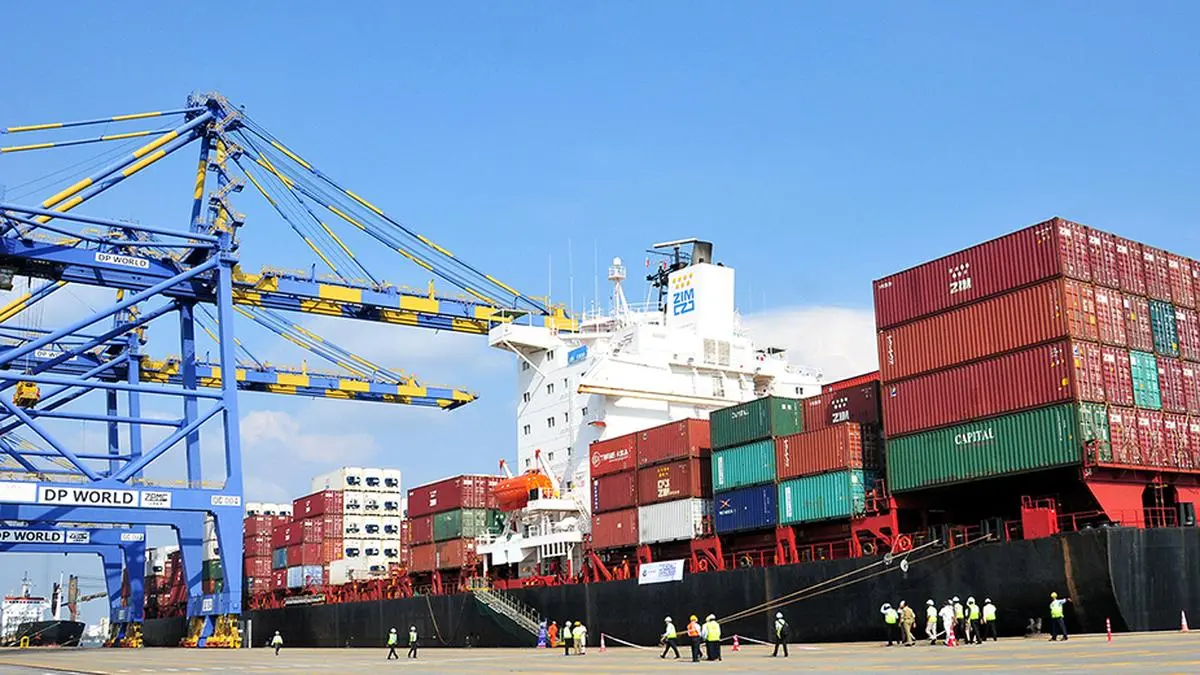
Revenue Department, on Tuesday, issued a circular rescinding an earlier circular (29/2020) that had allowed transshipment of export cargo from Bangladesh to third countries using Indian land customs stations en route to Indian ports and airports
| Photo Credit:
VIPIN CHANDRAN
India has decided not to allow transshipment of export cargo from Bangladesh to third countries using Indian land customs stations en route to Indian ports and airports any more.┬Ā
The move has been appreciated by Indian exporters who say that it will lower transportation cost for them and decongest airports.┬Ā
But some experts say that IndiaŌĆÖs landlocked neighbours, Nepal and Bhutan, may raise concerns about their hampered trade with Bangladesh and the move may not be in tandem with WTO rules.
On Tuesday, the Revenue Department issued a circular rescinding an earlier circular (29/2020) that had allowed transshipment of export cargo from Bangladesh to third countries using Indian land customs stations en route to Indian ports and airports.
ŌĆ£This facility enabled smooth trade flows for BangladeshŌĆÖs exports to countries like Bhutan, Nepal, and Myanmar. With the new circular, this transshipment arrangement has been terminated with immediate effect,ŌĆØ Ajay Srivastava from Global Trade Research Initiative (GTRI) pointed out.
However, cargo that has already entered Indian territory under the earlier system will be allowed to exit as per the existing procedures.
Indian exporters said that the government had acted on a long-pending request from them for stopping transshipment of Bangladeshi cargo. ŌĆ£This will help in rationalisation of freight rates resulting in less transportation cost to the Indian exporters besides decongesting the airports leading to shorter transit time to ship the goods,ŌĆØ according to Mithileshwar Thakur, Secretary General, Apparel Export Promotion Council.
Srivastava explained that BangladeshŌĆÖs plans of using Chinese investment to revitalise their air base near Siliguri corridor may have prompted IndiaŌĆÖs move.┬Ā
ŌĆ£India always supported BangladeshŌĆÖs cause. It allows one way zero tariff access to Bangladesh goods (except alcohol and cigarettes) since the past two decades. However, Bangladesh plans for creating strategic base near `chickenŌĆÖs neckŌĆÖ area with ChinaŌĆÖs help may have prompted this action. Bangladesh has invited Chinese investment to revitalise the air base at Lalmunirhat near IndiaŌĆÖs Siliguri corridor,ŌĆØ he said.
Because of the inadvertent adverse effect on Nepal and BhutanŌĆÖs trade with Bangladesh, the two may raise concerns about restricted transit access, Srivastava pointed out.
He further noted that all WTO members are required to allow freedom of transit for goods moving to and from landlocked countries which means such transit must be unrestricted, free from unnecessary delays, and not subject to transit duties.
More Like This


Published on April 9, 2025
